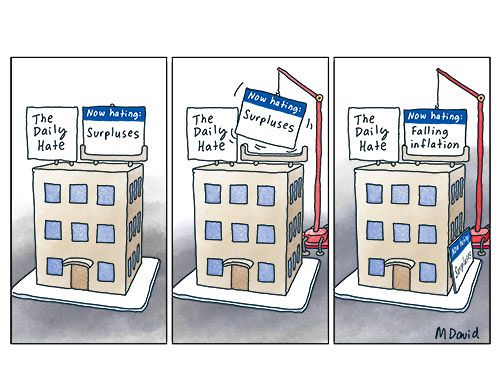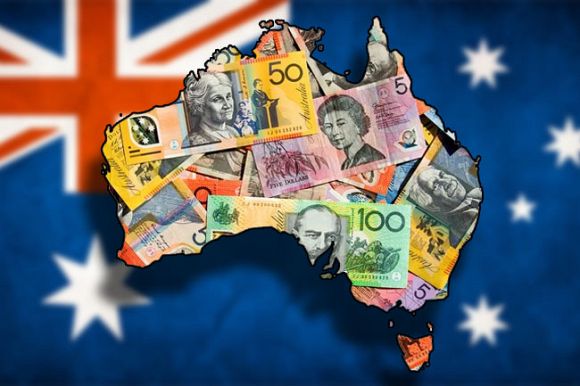Treasurer Jim Chalmers is blaming successive interest rate rises for the lack of economic growth, despite the RBA's misguided opinion. Stephen Koukoulas reports.
THERE HAS BEEN a bit of hustle-and-bustle surrounding some key issues in the economy, with Treasurer Jim Chalmers saying that high interest rates, among other things, are “smashing the economy”.
Reserve Bank (RBA) governor Michele Bullock is saying that strong demand in the economy, driven in part by strong growth in public sector spending, is keeping inflation higher for longer. This works towards its inclination to further increase interest rates in the months ahead with the governor suggesting that the market is a little ahead of itself by pricing in interest rate cuts before year-end.
Where does the truth lie?
While there are many nuances in the debate on inflation, growth and the role of interest rates in the pace of that economic growth, as there always are, some basic facts on the economy suggest, overwhelmingly, that Treasurer Chalmers is on the right side — the economy is indeed being smashed by high interest rates.
In terms of the most basic and broadly based indicator of the economy – GDP growth – it was just 1% in the year to the June quarter of 2024. This was the weakest pace of growth in 30 years outside the COVID pandemic and was only above zero because of the contribution of public demand — in other words, government investment and spending.
To suggest demand in the economy is strong is wrong. That is simple.
Furthermore, suggesting that the level of government spending is anything other than an economic lifeline at the time the private sector which has been “smashed” by oppressively high interest rates is also misguided.
It is stark and indeed disconcerting that private sector economic growth in per capita terms is tracking at around its weakest pace in 50 years.
It is not the Government that has caused this. Clearly.
So what has been the driver of this, frankly, horrible economic circumstance?
There has been a moderate negative draft on economic growth from a weaker global economy, although the impact of that has been cushioned to a large extent by the softness in the Australian dollar which is tracking around 65 to 68 U.S. cents for the best part of the last year. This effect is still unfolding with commodity prices still falling.
The current economic funk is certainly not the effect of any downturn in asset prices, which in the past has driven economic weakness. Indeed, the level of the ASX and house prices – the dominant contributors to household wealth – are at record highs and are a factor supporting growth. See charts on pages 7 and 21 here.
Let’s now look at how the economy has faltered in such a dramatic fashion.
When did the interest rate hikes start and how did the path of monetary policy progress?
The interest rate hiking cycle commenced in May 2022 when the RBA lifted the cash rate by 25 basis points to 0.35%. Between then and the last interest rate hike in November 2023, the RBA increased the cash rate by a total of 425 basis points to 4.35%.
This severe tightening in monetary policy has, unsurprisingly, had a significant impact on the rate of GDP expansion as it was designed to do.
If interest rates were lower, growth would be stronger. No one is arguing against this.
One of the elementary economic linkages is between the rate of economic growth and the unemployment rate.
When the pace of economic growth is slowing and weak, turnover in the business sector slows. These businesses require fewer workers for that weaker growth in output and as a result, unemployment rises.
The facts now show that as the interest rate hikes have been rolled out, the pace of annual economic growth has slowed from around 5% in 2022 to 1% today. Economics works because this has seen the unemployment rate rise from a low of 3.5% to the latest reading of 4.2%. At this stage, this jump in unemployment is relatively modest, but disconcertingly, the number of job advertisements are close to 30% below their peak which is a certain precursor for yet higher unemployment.
Governor Bullock and the RBA have downplayed this link and have noted that higher unemployment is necessary to cap wage growth, which in turn puts downward pressure on services and other inflation.
Even now, the RBA is noting that skills shortages are evident and the unemployment rate is still historically low. As such, it has no fears about yet higher unemployment as the economy stalls, which is in contrast to a range of other well-credentialed economists.
Don’t take my word for it — how are investors seeing things?
Investors are strongly of the view that the RBA will be wrong — yet again.
Despite many warnings from Bullock and other senior RBA officials that interest rate reductions were not on the agenda, markets are pricing in a near certain probability of an interest rate cut before the end of 2024 and a total of 100 basis points of interest rate cuts by the end of 2025.
Such is the weakness of the economy and the assessment that inflation will be well entrenched in the RBA target range that these rate cuts, not RBA hikes, will be delivered.
This dovetails with the narrative of Treasurer Chalmers that the economy is being “smashed”, that the Government is helping to lower inflation and that its fiscal strategy is actually a reason why the economy is not even weaker.
The RBA may yet change its view.
If the next few months' inflation dips further – below 3% – and the unemployment rate keeps tracking high with wage growth easing further, the RBA will move to cut interest rates because its “smashing” of the economy has gone too far.
Stephen Koukoulas is an IA columnist and one of Australia’s leading economic visionaries, past Chief Economist of Citibank and Senior Economic Advisor to the Prime Minister.
Related Articles
- CARTOONS: Mark David is letting sleeping dogs lie
- Wage growth outpacing inflation — good news to ease cost of living
- Finding the tools to end the cost of living crisis
- Cost of living crisis fuels surge in foreign dividends
- Cutting costs in a sky-high economy
 This work is licensed under a Creative Commons Attribution-NonCommercial-NoDerivs 3.0 Australia License
This work is licensed under a Creative Commons Attribution-NonCommercial-NoDerivs 3.0 Australia License
Support independent journalism Subscribe to IA.















